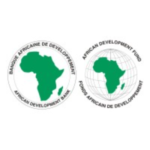
Bancassurance Manager

Risk Analyst

Index Insurance Specialist

Risk Officer


FAQs for Risk and Insurance Management Jobs in Malawi
What educational qualifications are required for Risk and Insurance Management positions in Malawi?
Risk and Insurance Management roles in Malawi typically require a solid educational foundation in relevant disciplines. Candidates should possess at least a bachelor’s degree in Risk Management, Insurance, Finance, Business Administration, or a related field from an accredited institution. For advanced positions, such as Risk Managers, Insurance Underwriters, or Compliance Officers, a master’s degree or specialized certifications (e.g., Chartered Property Casualty Underwriter (CPCU), Certified Risk Manager (CRM), or Certified Insurance Counselor (CIC)) may be necessary. Additionally, holding certifications from recognized institutions can significantly enhance a candidate’s qualifications and competitiveness in the job market. For those seeking further education, explore Bachelors Scholarship and Masters Scholarship opportunities to support your academic advancement.
Beyond formal education, practical experience is highly valued. Employers seek individuals with hands-on experience through internships, trainee programs, or previous employment in insurance firms, financial institutions, or corporate risk departments. Participation in Internship Opportunities can significantly strengthen your application by providing real-world experience and networking opportunities within the risk and insurance management sectors. Continuous professional development through Courses & Trainings (Funded) is also recommended to stay updated with the latest industry trends and best practices in risk management and insurance.
How is the demand for Risk and Insurance Management professionals evolving in Malawi’s economy?
The demand for Risk and Insurance Management professionals in Malawi is steadily increasing, driven by the growth of key economic sectors such as finance, construction, manufacturing, and healthcare. As Malawi’s economy diversifies and expands, the need for effective risk management and comprehensive insurance solutions becomes critical for businesses to mitigate potential losses and ensure sustainability. This trend is further fueled by the rise of multinational corporations establishing operations in Malawi, creating a broad spectrum of job opportunities for qualified risk and insurance management experts.
In addition to traditional insurance roles, there is a growing demand for professionals adept in emerging areas such as cyber risk management, environmental risk assessment, and integrated risk solutions. The integration of technology into risk management processes, including the use of data analytics and digital risk assessment tools, is creating new opportunities for those with expertise in IT and data science within the risk management field. Staying informed about these industry trends through resources like Job in Malawi and Energy Sector Jobs in Malawi can help candidates identify emerging opportunities and align their skills with market demands. Furthermore, the increasing emphasis on regulatory compliance and corporate governance is enhancing the value of risk and insurance management professionals in both public and private sectors.
What key skills and competencies are essential for success in Risk and Insurance Management roles in Malawi?
Success in Risk and Insurance Management roles in Malawi requires a combination of technical expertise and soft skills. Key technical skills include proficiency in risk assessment and analysis, insurance underwriting, claims management, and knowledge of relevant insurance products and services. Candidates should also be adept at using risk management software, data analysis tools, and financial modeling to evaluate potential risks and develop effective mitigation strategies. Additionally, a strong understanding of regulatory compliance, industry standards, and ethical practices is essential for maintaining integrity and ensuring adherence to legal requirements in insurance operations.
On the soft skills front, employers value excellent communication and interpersonal abilities, as risk and insurance professionals often interact with clients, stakeholders, and team members to assess needs and provide tailored insurance solutions. Critical thinking and problem-solving skills are crucial for identifying potential risks, developing innovative risk mitigation strategies, and addressing complex insurance claims and disputes. Organizational and time management skills are important for handling multiple projects, meeting deadlines, and ensuring efficient workflow within insurance departments or risk management teams. Enhancing these skills through Courses & Trainings (Funded) and Soft Skills Training can make candidates more attractive to potential employers and facilitate career advancement.
How can Risk and Insurance Management professionals in Malawi advance their careers and stay competitive in the job market?
Career advancement for Risk and Insurance Management professionals in Malawi involves a strategic combination of education, skill development, and networking. Pursuing advanced degrees or specialized certifications can open doors to higher-level positions and specialized roles within the risk management and insurance sectors. Engaging in continuous learning through Training Opportunities helps professionals stay updated with the latest industry trends, technological advancements, and best practices in risk management and insurance.
Networking is another critical component for career growth. Building connections with industry peers, attending risk management and insurance conferences, and participating in professional associations can provide valuable insights and job leads. Additionally, gaining experience in diverse roles within risk and insurance management, such as working in different insurance products, corporate risk departments, or consulting firms, can enhance a professional’s versatility and marketability. Utilizing resources like Consultancy Projects and Internship Opportunities can also provide practical experience and facilitate transitions into more advanced roles. Furthermore, developing a strong personal brand and leveraging online platforms, such as LinkedIn, can increase visibility and attract potential employers.
What are the common challenges faced by Risk and Insurance Management professionals in Malawi, and how can they overcome them?
Risk and Insurance Management professionals in Malawi often encounter challenges such as regulatory changes, market volatility, and the complexities of managing diverse insurance portfolios. Rapidly changing regulations and compliance requirements can impact insurance operations and risk management strategies, requiring professionals to stay informed and adapt quickly to maintain compliance and operational efficiency. Market volatility, influenced by economic fluctuations and global events, can affect insurance pricing, risk assessment, and claims management, posing challenges for maintaining profitability and sustainability.
Additionally, managing diverse insurance portfolios across different industries and sectors can be complex, requiring specialized knowledge and tailored risk mitigation strategies to address unique sector-specific risks. To overcome these challenges, Risk and Insurance Management professionals can seek out continuous education and training to enhance their knowledge of regulatory frameworks, advanced risk management techniques, and emerging insurance products. Engaging in Courses & Trainings (Funded) can provide access to the latest tools and methodologies in risk assessment and insurance management. Building a strong professional network through Networking Strategies for Job Seekers can offer support, resources, and collaborative opportunities to address regulatory and market challenges. Additionally, leveraging technology and data analytics to improve risk prediction, insurance underwriting, and claims processing can enhance operational efficiency and mitigate the impact of market volatility on insurance portfolios. Advocating for better industry standards and engaging with regulatory bodies can also contribute to a more stable and predictable insurance and risk management environment in Malawi.